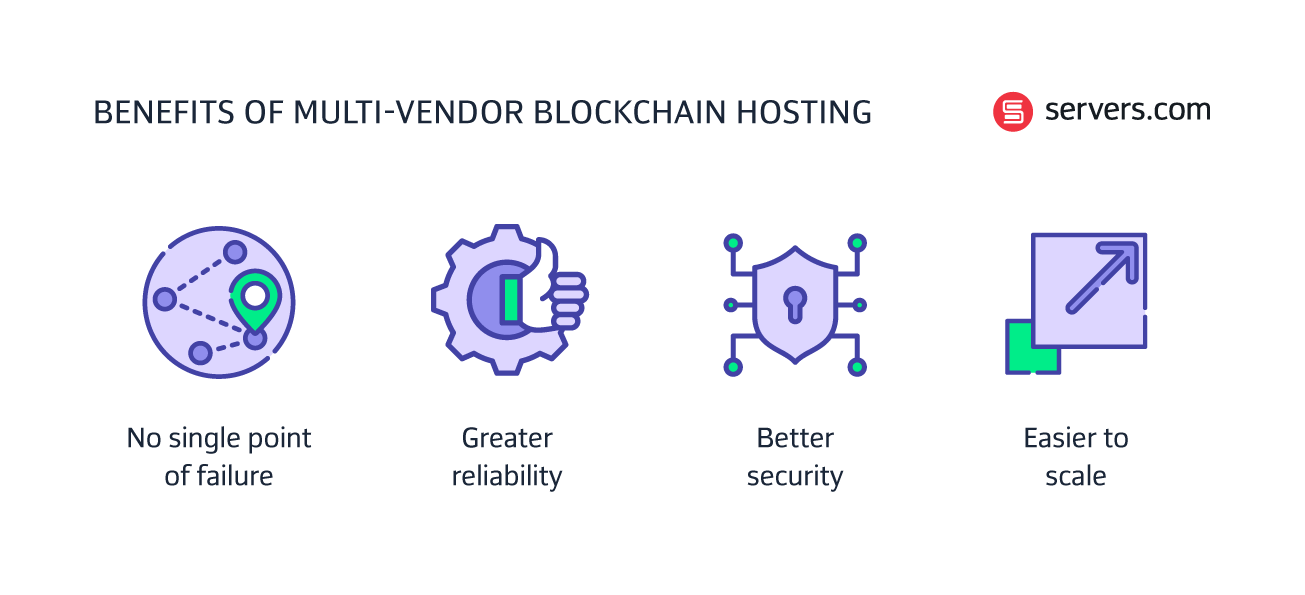

Predicted to grow to around $2,334 billion by 2032, the blockchain market won’t be slowing down anytime soon. To put that huge number into context, the 2023 global blockchain market was valued at $8.89 billion. That’s a compound annual growth rate (CAGR) of 85.7%.
Described as “a mathematical framework that is free of politics and human error” by American investor and cryptocurrency exchange founder Tyler Winkelvoss - along with cryptocurrency, blockchain offers an alternative to our current finance system and as such is popular with those who want to operate outside of traditional rules.
Unlike cryptocurrency, however, much of blockchain’s success is down to its perceived reliability. In an HBR article ‘The truth about blockchain’, the authors stated that “with blockchain, we can imagine a world in which contracts are embedded in digital code and stored in transparent, shared databases, where they are protected from deletion, tampering, and revision”.
The problem is, even with all this success and promise, blockchain is facing a potential identity crisis.
Despite the fact that blockchain and cryptocurrencies appeal to those who lack trust in institutions - banks, governments, big tech firms - the vast majority of Web3 infrastructure sits with just two or three blockchain node hosting providers. Take Ethereum for example. The majority (69%) of 4,653 active Ethereum nodes are hosted by three major cloud providers, of which Amazon Web Services (AWS) boasts over 50%.
Ethereum is just one example of the problem, so what does this lack of decentralization within blockchain mean? What issues does it create? And what should blockchains and cryptocurrencies consider to realize decentralized finance? To answer these questions, we need to start by looking in more detail at what decentralization in blockchain node hosting actually is.
As one of its founding characteristics, decentralization is central to blockchain’s ability to disseminate power and decision-making away from a central authority.
In Satoshi Nakamoto’s white paper published back in 2008, where he is credited with introducing the concept of a “chain of blocks”, he states that the system would be “trustless”. It wouldn’t rely on a trusted party to arbitrate transactions.
To achieve that “trustless” approach, decentralization must be applied to all aspects of the blockchain application. In practice, that means that how the application is managed and the resources that it holds must also be decentralized.
In other words, blockchain node hosting shouldn’t be carried out by just one Web3 infrastructure hosting provider. Blockchain node servers should be spread around multiple Web3 infrastructure hosting providers to achieve true decentralization.
Why is a decentralized Web3 infrastructure so important? In response to the news that Ethereum nodes are in the hands of centralized web providers, crypto analytics platform Messari warned that this centralization vs decentralization could “expose Ethereum to central points of failure”.
More broadly, Marta Belcher, president and chair of the Filecoin Foundation said that “today’s internet is centralized - right now, the majority of data making up the many websites we use every day sits in data warehouses owned by just three companies: Amazon Web Services, Microsoft Azure and Google Cloud. We have often seen these companies suffer blackouts, and swaths of the Web go down for hours - that’s the problem with having single points of failure”.
Any malfunction at the top of the centralized hierarchy has a knock-on effect on the entire system. For example, if the database - a main point of failure - is hacked, the whole system is jeopardized.
If blockchain and cryptocurrencies are being hailed as the new finance system alternative, there cannot be concerns around the reliability of the system. Which is where decentralized Web3 infrastructure hosting comes in. It spreads control and information across many different points, increasing security and offering up more diversified control.

While setting up your own nodes is possible, the rising popularity of blockchain has increased the minimum hardware requirements needed to ensure the level of memory and processor power for the successful deployment of a node.
This means that working with a node server hosting provider can be a better option. As well as setting up the node server, the Web3 infrastructure provider will manage ongoing maintenance and services needed to keep the node server operational. They can also help scale fast, adding additional node servers quickly, as needed.
As we’ve discussed in this piece, the best approach to working with a Web3 infrastructure provider is not to throw your lot in with just one. It’s true, the hyperscale cloud providers offer a quick, flexible service to spin up node servers quickly. But, as we know, it’s also true that these providers can suffer from downtime. To ensure reliable, always-on blockchain node hosting, consider working with multiple vendors. And we don’t just mean the big players. Look at the smaller players who provide the same level of service, if not better, with far more personalized support from real people rather than bots.
Not only does decentralizing your nodes away from one single provider meet the expectations of what blockchain stands for in the first place. It can also help with the security of your node servers by removing the single point of failure. If one node goes down the performance of your decentralized app (dapp) won’t be effected, and a backup node can be activated in a separate data center.
While that might sound like you’re creating more work for yourself, working with Web3 infrastructure providers is easier than it’s ever been so very little is actually involved in starting a new relationship. And when you need a new node server or want to change the spec, the process is quick and easy.
To go from a $7billion to a $164billion industry, blockchain - or perhaps more accurately, the way that it approaches infrastructure - needs to do some growing up. It can no longer just rely on one or two blockchain node hosting providers but has to start looking around to what else is out there in order to realize a truly decentralized future.
The good news is that there are plenty of options. And most Web3 infrastructure providers are more than happy to be part of a decentralized ecosystem.
If you are looking for an alternative Web3 infrastructure provider, check out our blog on what to consider when choosing a Web3 hosting partner and what good node server hosting infrastructure looks like.

Hannah is an experienced communications professional, with a decade-long career developing memorable campaigns for some of the world's biggest technology companies. She has a keen eye for detail and flair for creativity.